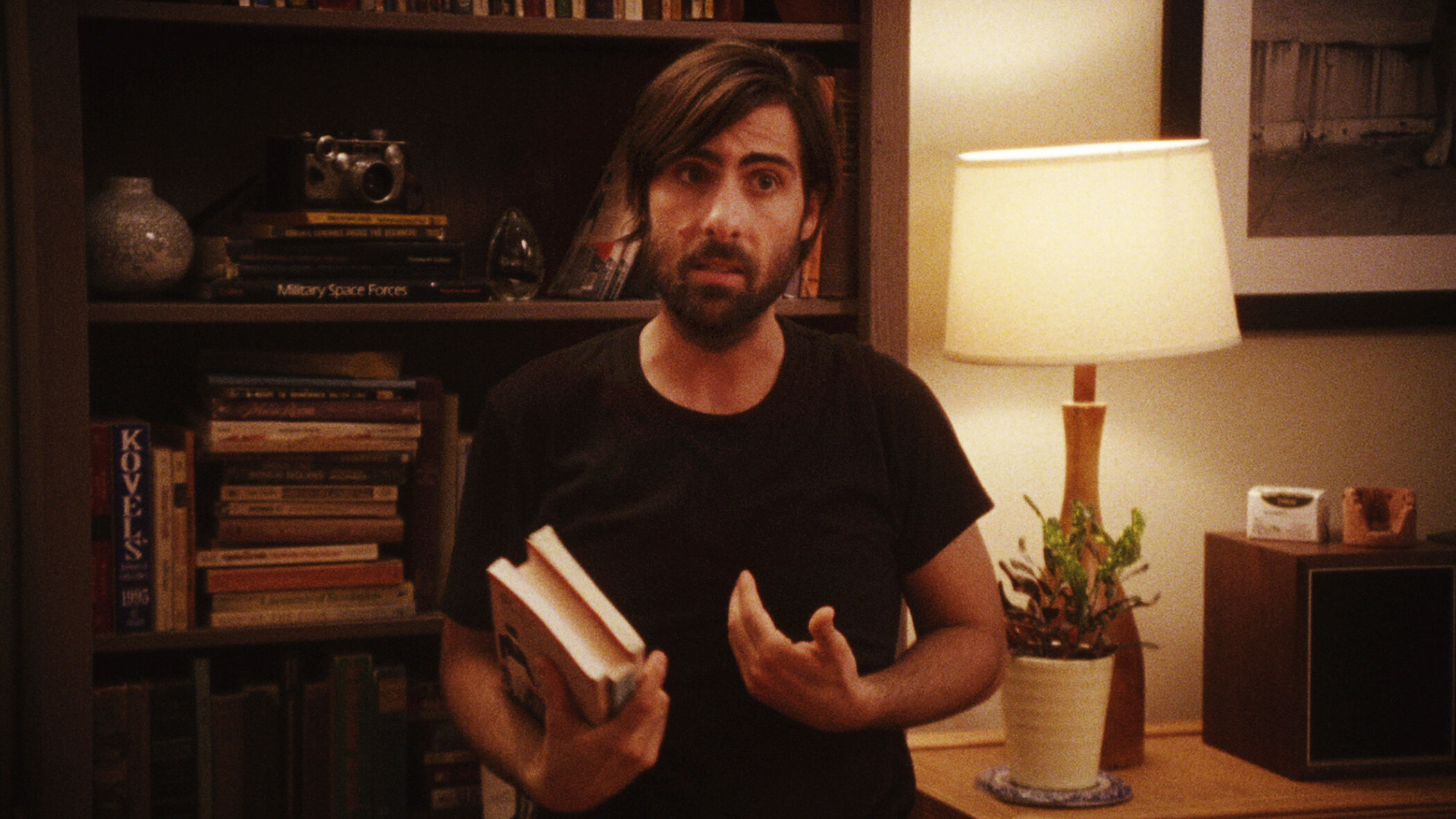Review: Listen Up Philip
With a narcissistic protagonist who consistently ruins his relationships and friendships, Alex Ross Perry's Listen Up Philip hardly tries to reinvent the anti-hero. Indeed, Philip Lewis Friedman seems to bounce from one failed relationship to another, all the while smugly asserting his superiority over anyone unfortunate enough to listen. With the final narration implying that Philip has even managed some form of self-alienation, the film's passive portrayal of Philip's trajectory into lonely arrogance seems somewhat cruel. Just one thing saves the film from Philip's perpetual narcissism: it's hilarious.
From the jazz piano interludes to the quick cuts between short scenes, Listen Up Philip maintains a lighthearted atmosphere that permeates Philip's experiences in New York City and its surrounding countryside. The handheld camerawork lets Philip excoriate his friends and colleagues quickly, hardly finishing with one before moving to the next. The narration, with its lengthy, novelistic sentences, lends humorous insights into Philip's life, which becomes increasingly solitary and devoid of sympathy for anyone, save for Ike Zimmerman.
Zimmerman, Philip's mentor and nominal friend, acts like an older Philip, having ended every meaningful relationship in his life. With claim to youthful literary success, Zimmerman constantly reminds Philip of his middling achievements, a recurring joke throughout the film that demonstrates the writers' insatiable egos. A pivotal scene shows Zimmerman and a friend attempting to entertain two women at Zimmerman's house, only to find that they need Philip's presence to keep the women's attention. Neither Zimmerman nor Philip really cares about any of the women in their lives; any romantic attachments serve only as crutches of emotional support.
Although Philip's girlfriend Ashley provides him plenty of support, her photography career has been far more successful than his own as a writer, a constant source of embarrassment in his life. Philip's girlfriend Ashley quickly realizes the extent of his selfishness, and her efforts at coping with the breakup provide the other half of the film's humor. She tries selling Philip's belongings, gets herself a cat, and talks to lowlife characters at the bar. As Philip reappears in her life at inopportune moments, the thin facade of Philip's callousness becomes painfully clear. He has no idea what he wants from life, aside from literary fame (not just notability, as he asserts), and without the emotional support that Ashley provides, Philip can only listen to the self-serving advice that Zimmerman provides.
Listen Up Philip offers no reconciliation for Philip, and as the film ends, his narcissism has landed him at the “low point of his adult life.” The narrator explains that although Philip will eventually achieve literary fame, he will ultimately become an emotionless specter, wary of anyone getting too close to him. That is, Philip will become exactly whom he wanted: a version of Ike Zimmerman. With Philip's absurdly inappropriate criticisms of everyone in his life, the film never takes Philip's predicament too seriously. In fact, plenty of people in his life, notably Ashley, have already explicitly warned him about his selfishness, so he has had plenty of opportunities to change himself. All Philip had to do is listen up.
Alex Ross Perry's latest, Queen of Earth, tracks two women who grew up together, only to find how much they've drifted during a weekend retreat. The film released to high acclaim late-August due in no small part to Elizabeth Moss's searing performance as Catherine, who increasingly descends into madness and despair as the film goes on.
